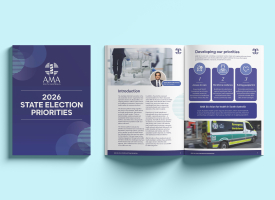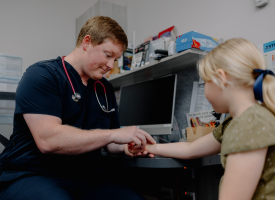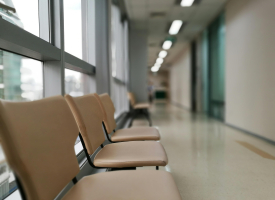Release of the 2022 Medical Training Survey Results
The results of the 2022 Medical Training Results were released in early February 2023, confirming that the working conditions and culture within health settings urgently need to be improved.

The Medical Training Survey is an annual national survey of doctors in training across Australia. In 2022, more than 23,000 DiTs responded to the survey answering questions on training, supervision, workplace, and patient safety. The survey data is a valuable tool and barometer for understanding Australia’s culture of medicine, medical training, and other issues relating to doctors in training.
The 2022 MTS results found that:
-
7 per cent increase (to 53 per cent) in the number of trainees who have rated their workload as heavy/very heavy since the COVID-19 pandemic started in 2020.
-
Two thirds (67 per cent) of doctors in training reported working more than 40 hours on average per week, including one in 10 (10 per cent) who worked more than 60 hours per week on average.
-
20 per cent of trainees are considering leaving medicine. This is up from 18 per cent in 2021. The rate is higher for Aboriginal and Torres Strait Islander trainees, with 29 per cent considering leaving.
-
One in three doctors in training (34 per cent) had either experienced and/or witnessed bullying, harassment, discrimination and/or racism in their workplace.
-
55 per cent of Aboriginal and Torres Strait Islander trainees experienced and/or witnessed bullying, harassment, discrimination and racism.
-
The most common type of behaviour experienced or witnessed was bullying (experienced: 12 per cent, witnessed: 19 per cent). In a sign of greater pressure on our health system, patients and/or family members/carers of the patients were also responsible for the bullying, harassment, discrimination and/or racism experienced or witnessed by two in five doctors in training
Chair of the AMA Council of Doctors in Training, Dr Hannah Szewczyk, said to retain trainee doctors, genuine and long-lasting changes needed to be made to improve the culture and working conditions in hospitals across the country.
“Trainees are experiencing a pressure cooker environment in their public hospital workplaces with totally unacceptable levels of bullying, harassment and racism, with Aboriginal and Torres Strait Islander trainees being particularly affected,” Dr Szewczyk said.
Dr Szewczyk said the survey found that where trainees had experienced bullying, harassment, discrimination and/or racism, 70% did not report it. 55% of these said they were concerned about the repercussions, and 51% said nothing would be done if they did make a report.
“This reluctance to report is indicative of poor workplace culture and highlights the failure of hospitals to establish the systems and processes necessary to tackle these problems, something the AMA believes needs to be addressed through legislative change and strengthening the National Safety and Quality Health Service Standards.
“We have seen South Australia and Queensland move to make hospital boards more accountable for providing a safe psychosocial work environment and this needs to happen in all states and territories,” Dr Szewczyk said.
You can find the 2022 results of the Medical Training Survey here.



